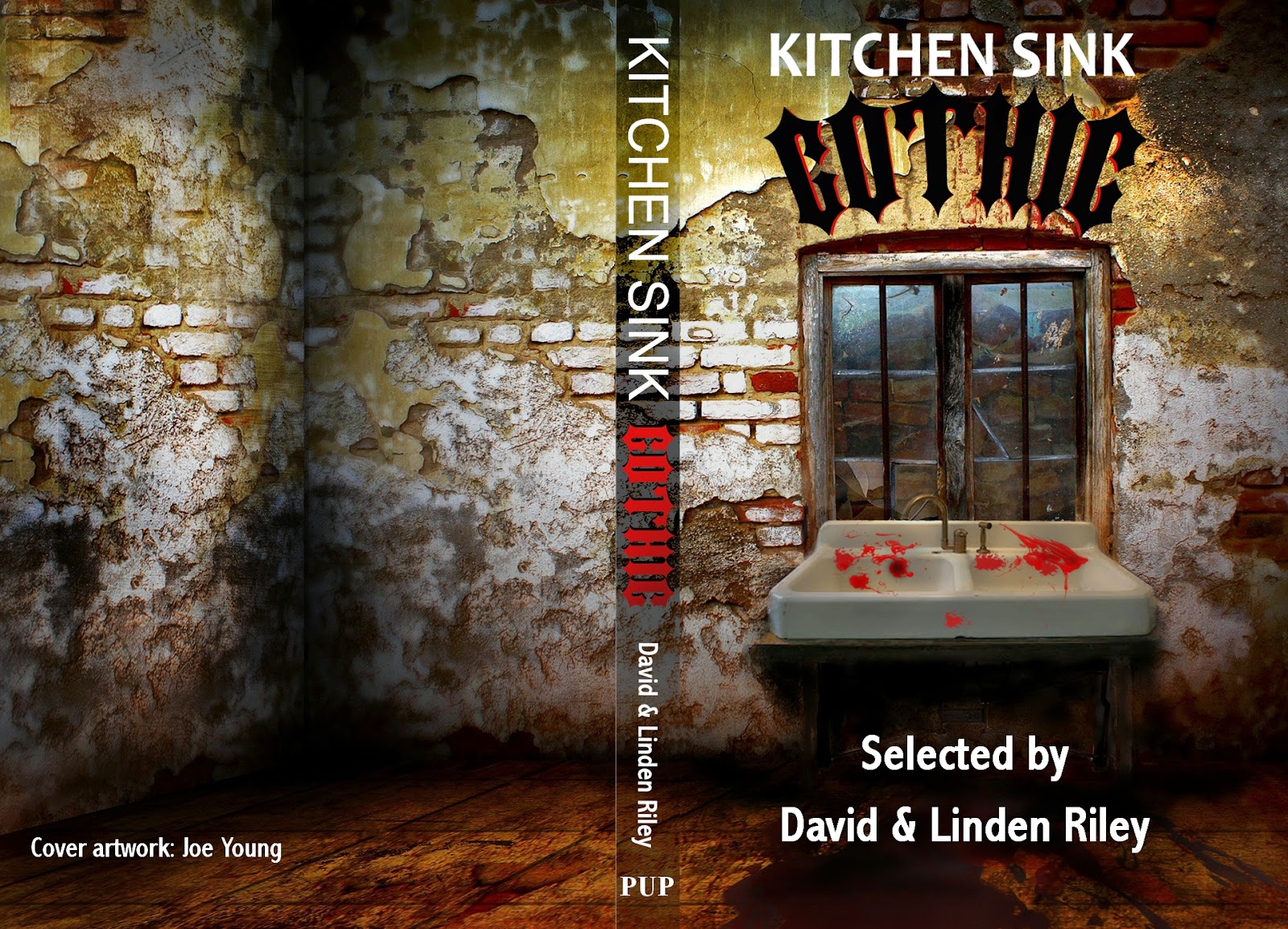 |
| Cover artwork: Joe Young |
Parallel Universe Publications is now accepting submissions, either original or reprints, for an anthology of stories inspired by the classic British cinema/theatre phenomenon known as kitchen sink drama.
What Culture described it as: "A determination to examine the lives of the working and dispossessed classes in a non sentimental way...The movement began in the late 1950s and has survived to this day with the oeuvre of Ken Loach and films such as Nil By Mouth. Tackling thorny themes is a trademark of the Kitchen Sink drama. Abortion, divorce, homelessness, single motherhood, inter racial sex, poverty and homosexuality were all ripe topics to be examined. There was also the advent of The Angry Young Man – usually working class men railing against everyone and everything."
That fount of all knowledge, Wikipedia, describes it as: "a term coined to describe a British cultural movement that developed in the late 1950s and early 1960s in theatre, art, novels, film and television plays, whose 'heroes' usually could be described as angry young men. It used a style of social realism, which often depicted the domestic situations of working-class Britons living in cramped rented accommodation and spending their off-hours drinking in grimy pubs, to explore social issues and political controversies.
The films, plays and novels employing this style are set frequently in poorer industrial areas in the North of England, and use the rough-hewn speaking accents and slang heard in those regions. The film It Always Rains on Sunday (1947) is a precursor of the genre, and the John Osborne play Look Back in Anger (1956) is thought of as the first of the idiom.
The gritty love-triangle of Look Back in Anger, for example, takes place in a cramped, one-room flat in the English Midlands. The conventions of the genre have continued into the 2000s, finding expression in such television shows as Coronation Street and EastEnders.[1]
In art, "Kitchen Sink School" was a term used by critic David Sylvester to describe painters who depicted social realist-type scenes of domestic life.[2]"
We look forward to tales of darkness and horror, of the supernatural and the weird within the overall framework of the social realism of the kitchen sink drama.
Please send your submissions to rileybooks@ntlworld.com headed "Kitchen Sink Gothic" as an attachment in either doc or docx. We welcome either new stories or reprints. If a reprint please add details of previous publication. We have no firm maximum length though obviously the longer the story the better it will need to be to be accepted.
Payment will be £5 per thousand words and a contributor's copy of the book.

Excellent - very fitting.
ReplyDelete